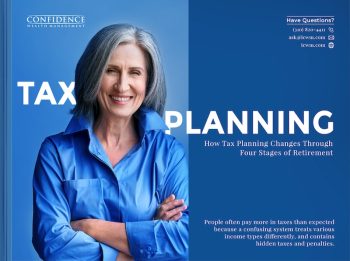If you’re a decade or so away from retirement, you’ve probably spent at least some time thinking about this significant life change.
- How will you manage the transition?
- Will you travel, take up a new sport or hobby?
- Will you spend more time with friends and family?
- Will you continue to work in some capacity?
- Will changes in your income sources affect your standard of living?
Thinking about all of the issues surrounding the transition, the process can seem daunting.
However, I’ve got a few points I would like you to consider while you still have years ahead. My hope is that this guide will help you focus your efforts and minimize the anxiety that often accompanies your shift into retirement.
Reassess Your Living Expenses
As you progress through retirement, you need to reassess the cost of your expenses.
For example, commuting and other work-related costs may decrease, while other budget items, such as healthcare costs, may rise.
To handle this, you will need to estimate your monthly expense budget for the first few years after you stop working. Continue to reassess this budget as your vision of retirement becomes a reality. Doing this will greatly help you to anticipate your budget while in retirement.
Consider All Your Income Sources
As you transition into retirement, part of planning your budget is determining where your funds will be coming from. Here are some steps that you may need to consider when determining your income sources:
- Determine how much you stand to receive in social security. It is essential since the amount you receive will depend on your earnings history and other unique factors.
- Review the accounts you’ve earmarked for retirement income, including any employer benefits. Start with your employer-sponsored plan, and then consider any IRAs and traditional investment accounts you may own.
- Estimate how much your employer could provide on a monthly basis by contacting your employer’s plan administrator for an estimate of that monthly benefit amount, especially if your employer provides a traditional pension plan.
- Consider other ways to make money when you retire. For example, some retirees turn their hobbies into an income source. Others include selling gently used goods and pet sitting to generate extra cash.
Pay Off Debt, Power Up Your Savings
Once you’ve figured out what your possible expenses and income look like, the next step is to draw up a plan for paying off debts and power up your retirement savings before retirement.
You may ask, “Why pay off debts and power up your savings?” Paying off debts gives you the opportunity to modify your monthly expenses in retirement, and the ability to scale back your spending if necessary.
On the other hand, powering your savings helps you take advantage of catch-up contributions such as IRAs and 401(k) since you’ll likely earn the highest career salary before retirement.
Manage Taxes
As you think about when to tap your various resources for retirement income, it is important to consider the tax impact of your strategy.
For example, you may want to withdraw money from your taxable accounts to allow your employer-sponsored plans and to give IRAs more time to benefit from the task-deferred ground.
However, remember that you’re only required to take a minimum distribution from tax-deferred accounts once you reach age 72, whether or not you need the money.
Of course a tax-based decision may be daunting, nevertheless, I recommend speaking to qualified tax and financial professionals to provide valuable insight and guidance for you.
Account for Health Care
Your health care should be given special attention as you plan the transition to retirement. This is because as you age, the portion of your budget consumed by health-related costs (including both medical and dental) will likely increase.
However, you can account for this by exploring Original Medicare Parts A and B, a healthcare insurance that covers inpatient and outpatient care respectively, while you will have deductibles, copayments, and coinsurance to cover yourself.
If you aren’t ready for these terms and conditions, you can purchase a supplemental Medigap insurance policy (which pays many of your out-of-pocket plans).
Another option to explore is long-term health insurance, especially in situations where your spouse or a family member would need home care, nursing home care, or other long-term assistance which Medicare will not cover.
It could also be that you have substantial assets you’d like to protect or want to leave assets to heirs, which is why people buy long-term care insurance.
Ease the Transition
Thinking about your transition to retirement can be overwhelming, but breaking the bigger picture into smaller categories and using the years ahead to plan accordingly may help make the process a little easier.
Please connect with us and let us help you plan for your dream retirement. We would be delighted to go on the journey with you.








